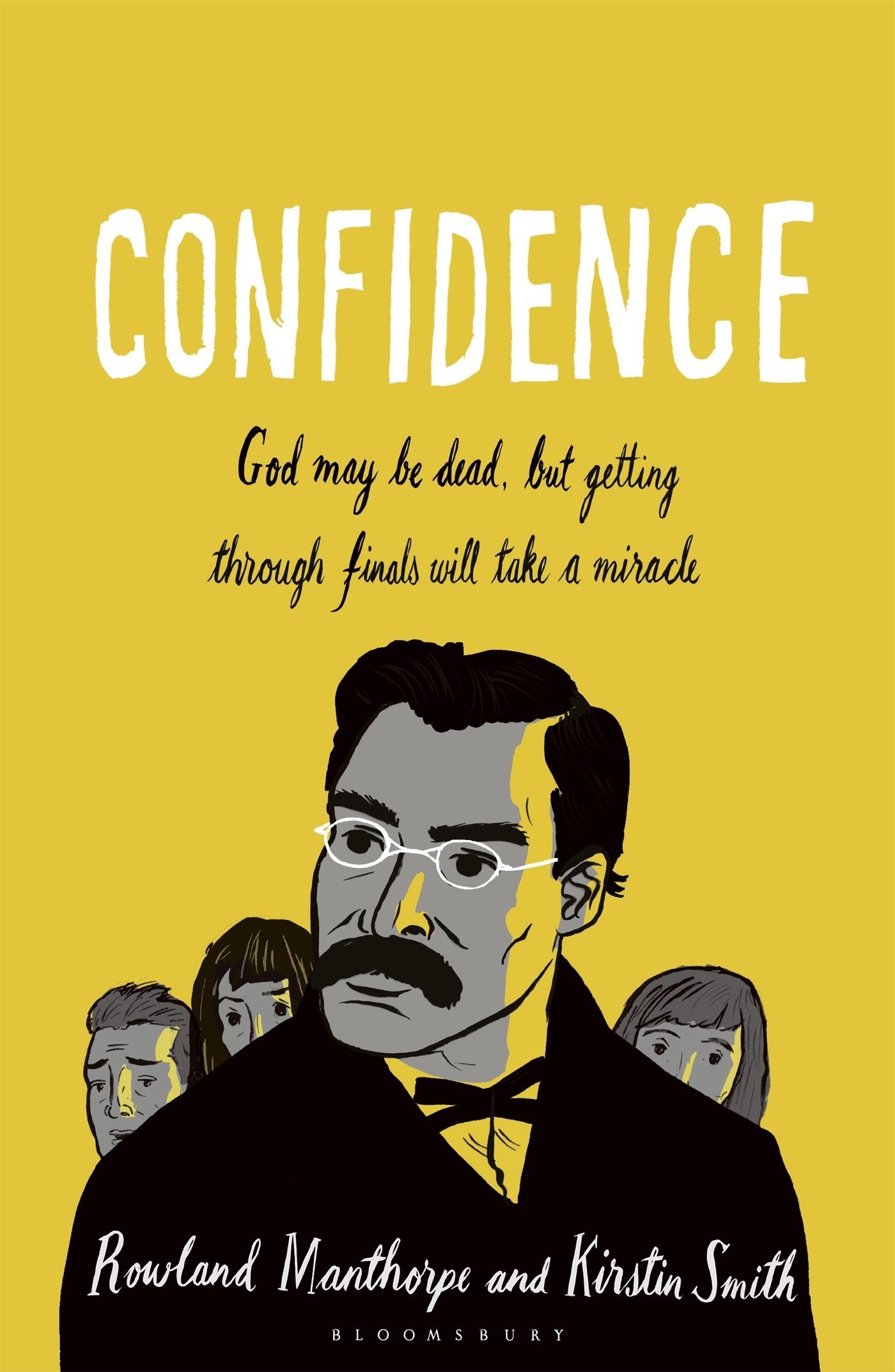The debut of writing team Rowland Manthorpe and Kirsten Smith, Confidence tracks two occasionally coinciding protagonists as they navigate the trials and tribulations of their final year at university. Ellie has hit a brick wall with her dissertation, and battles lukewarm feelings towards her unfailingly devoted boyfriend as her social life flounders in the frenzy of revision period. Meanwhile, Charlie finds himself unmoored by his breakup with smart but maternal Sara, his dreams of sexual freedom and entrepreneurial success dissipating under the reality of his own lack of preparation and hideous banter with the ‘ladz’.
Interspersed with these narratives are sections about Nietzsche and his philosophy of confidence, which form something part essay, part biography, breezily introducing the reader to his life and central tenets of his philosophy. These sections inform the characters’ lives as they spiral comically out of control, reaching for a practical connection between philosophy and the struggles of student existence.
A fresh and unsentimental depiction of modern university life is Confidence’s undoubted strength. Eschewing the nostalgic tone of predecessors such as Starter for Ten, Manthorpe and Smith drop the English campus novel squarely into the twenty-first century, a landscape dominated by debt, sexist Lad Culture and an often ill-fated desperation to lead the debauched ideal of student life.
The obvious humour in this world finds voice easily, but there are also some depressingly accurate reflections of the corporatisation of universities, and little shying away from the grim reality of campus sexism.
For a novel that is occasionally so clear-eyed, it is disappointing that it drifts, rather like its protagonists’ lives, into slightly unfocused excess. While Ellie and Charlie make engaging anchors, their respective trajectories reach such absurd levels of disaster that it sometimes seems they belong to a less sharply-observed episode of Fresh Meat, rather than any aim for practical philosophical understanding. The supporting cast, meanwhile, are painted in broad brushstrokes (homogeneous Ladz, devoted boyfriend, boat-dwelling eccentric) that make them more quirky background dressing than fleshed out characters. Although littered with pithy observations, the prose is occasionally clunky and rarely soars, with jokes often falling flat in what feels like a strain to be relatable.
There is also little attempt to integrate the sections about Nietzsche into the text as a whole. Though well-written, they read like a particularly interesting lecture rather than part of a novel. The attempt to situate the characters’ experiences in a philosophical context is admirable, and produces some genuinely relevant insights into the powerful and frustratingly elusive nature of confidence. It is unfortunate, then, that its clumsy realisation creates more a tiring feeling of constantly hopping between two entirely different modes than a true synthesis between life and ideas.
For all this, there is much to enjoy in Confidence: it is a fresh, ambitious and highly readable debut. And for those of us that have felt just as lost as Ellie and Charlie, it is not without some painful rings of truth.
Ella Gilani
(Image: Amazon UK)

